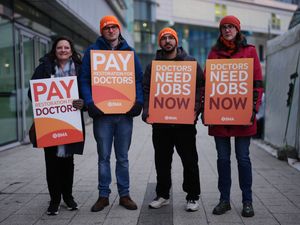Almost 100 beds blocked each week at Shropshire hospitals
Nearly 100 beds a week at Shropshire main hospitals are taken up by people who are fit to leave, figures releaed today have revealed.
Bed blocking at Royal Shrewsbury Hospital and Telford's Princess Royal Hospital has averaged more than 90 patients a week for the past 12 months.
The latest figures reveal the scale of the problem facing Shrewsbury and Telford Hospitals NHS Trust.
Latest figures reveal that in October 384 patients were still in hospital despite being medically fit for transfer over the month – translating to 2703 'lost bed days'.
The situation is expected to become more difficult through the winter, especially with a cold spell expected to move into the region at the weekend.
On average patients are unnecessarily taking up the beds for seven days at a time.
The reason for the delays in transfer are that there are no available beds in the community, or no available carers.
The hospitals trust said that the average lost bed days per month was up by 25.54 per cent for the first six months of 2016/17 when compared with the same period for the previous year.
The trust says that the increase in both the time people are waiting to leave hospital, and the number of people waiting, also has a knock–on effect on the time people spend waiting in A&E.
In its monthly board report the organisations says that patients have been waiting longer than in previous years.
It states: "The length of stay from July onwards to the end of October shows a higher length of stay than the previous year.
"RSH has already reached the levels seen in February & March which usually are the months with the longest length of stay."
The figures were released as controversy continued over a description by the British Red Cross of a "humanitarian crisis" gripping the NHS.
Chris Ham, chief executive of think tank the King's Fund, also said a new settlement for health and social care was urgently needed.
He wrote: "With social care, the number of older people receiving publicly funded care has fallen by more than 400,000 since 2009/10, while the health system is buckling under the strain of trying to meet rising demand and still maintain standards."





